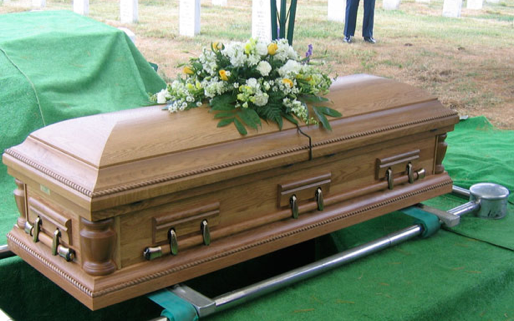Opening a funeral home in Kenya is a business opportunity that, while somber, provides essential services to the community. This guide offers a detailed overview of what it takes to start and run a successful funeral home in Kenya, covering everything from legal requirements to operational considerations.
Understanding the Funeral Industry in Kenya
The funeral industry in Kenya has evolved over the years, with increasing demand for professional and dignified funeral services. Traditionally, funeral arrangements were managed by family members, but as urbanization and lifestyle changes take root, there is a growing need for professional funeral homes that can provide comprehensive services. These services often include body preservation, transportation, embalming, casket sales, and even grief counseling. As with any business, success in this industry requires a deep understanding of cultural practices, market demand, and operational logistics.
Legal Requirements and Licensing
Before you can open a funeral home in Kenya, you must comply with the country’s legal and regulatory requirements. The first step is to register your business with the Registrar of Companies under the Business Registration Service (BRS). You can choose to register as a sole proprietorship, partnership, or limited company, depending on your business model. Additionally, you must obtain a county business permit, which is mandatory for all businesses operating within a county’s jurisdiction.
Specific to the funeral industry, you will need licenses from various government bodies. This includes a license from the Public Health Department, which ensures that your facilities meet health and safety standards. You may also need to get approval from the National Environment Management Authority (NEMA), especially if your services include cremation or other environmentally sensitive activities.
Securing a Suitable Location
Choosing the right location for your funeral home is crucial. The location should be easily accessible to your target market, with adequate parking space and proximity to hospitals, morgues, and cemeteries. Urban areas or growing towns may provide a larger customer base, but rural areas can also be viable, particularly if there is limited competition. The premises must be spacious enough to accommodate a chapel, viewing rooms, embalming facilities, and administrative offices.
The facility should also be designed with privacy and comfort in mind, providing a serene and respectful environment for grieving families. Consideration should be given to cultural sensitivities, including separate areas for different religious practices if necessary.
Setting Up the Facility
Setting up a funeral home requires significant investment in both infrastructure and equipment. Your facility should include a chapel for services, a morgue for body storage and preservation, embalming rooms, and viewing rooms where families can spend time with their loved ones. You’ll need specialized equipment such as embalming machines, refrigeration units, and hearses for transporting bodies.
Interior design should focus on creating a peaceful and respectful atmosphere. Comfortable seating, tasteful decor, and appropriate lighting can make a significant difference in how your clients experience your services. Additionally, ensure that your facilities are accessible to people with disabilities.
Hiring Qualified Staff
The success of your funeral home largely depends on the quality of your staff. It’s essential to hire experienced and compassionate professionals who can handle the sensitive nature of the work. Key staff members may include morticians, embalmers, funeral directors, and administrative personnel. Morticians and embalmers should be licensed and trained in handling human remains, while funeral directors should have strong organizational and interpersonal skills to manage funeral arrangements and interact with grieving families.
Ongoing staff training is also important to keep up with industry standards and to provide the best possible service to your clients. This can include training in grief counseling, cultural and religious practices, and the latest embalming techniques.
Financial Planning and Budgeting
Opening a funeral home is capital-intensive, with significant upfront costs for equipment, premises, licenses, and staff. It’s crucial to develop a detailed business plan that outlines your startup costs, operating expenses, and revenue projections. This plan will not only guide your financial decisions but will also be necessary if you are seeking financing from banks or investors.
Consider all potential revenue streams, including basic funeral services, embalming, body storage, casket sales, and additional services like transportation or memorial packages. Pricing should be competitive but also reflect the quality of service you offer. Be sure to include a contingency fund in your budget to cover unexpected costs.
Marketing and Customer Outreach
Marketing your funeral home requires a delicate approach due to the sensitive nature of the services provided. Building a strong reputation through word of mouth and community engagement is often more effective than traditional advertising. Consider creating a professional website that outlines your services, pricing, and contact information. Social media can also be a tool for reaching a broader audience, but it should be used respectfully and professionally.
Networking with hospitals, churches, and community leaders can also help build your client base. Additionally, offering grief counseling or support groups can differentiate your funeral home from competitors and provide added value to your clients.
Adhering to Ethical Standards
Operating a funeral home requires a high degree of professionalism and ethical responsibility. You will be dealing with grieving families during one of the most challenging times in their lives, so compassion, integrity, and transparency are crucial. Ensure that all transactions are clear and that families understand the costs involved. It’s also important to respect cultural and religious practices, as these will vary among your clients.
Maintaining confidentiality and protecting the dignity of the deceased is paramount. This includes handling remains with care and ensuring that all staff adhere to strict ethical standards.
Building Relationships with Suppliers
To run a successful funeral home, you’ll need to establish strong relationships with suppliers for caskets, embalming fluids, funeral flowers, and other necessary items. Reliable suppliers ensure that you can meet your clients’ needs promptly and efficiently. Negotiating favorable terms with these suppliers can help you manage costs and improve your profit margins.
In addition to suppliers, building relationships with local hospitals, hospices, and clergy can lead to referrals and partnerships, further expanding your business.
Navigating Cultural Sensitivities
Kenya is a culturally diverse country, and funeral practices vary significantly across different communities. Understanding and respecting these practices is essential for the success of your funeral home. Whether it’s a traditional Kikuyu burial, a Luo funeral, or a Christian or Muslim service, being knowledgeable about and accommodating these customs will set your business apart.
Consider offering customized services that cater to specific cultural or religious needs. This can include specific types of caskets, embalming techniques, or funeral rites. Being culturally sensitive will not only attract a wider client base but also build trust and loyalty within the community.
Conclusion
Opening a funeral home in Kenya is a business venture that requires careful planning, significant investment, and a deep commitment to providing compassionate and professional services. By following the steps outlined in this guide, you can establish a funeral home that meets the needs of your community while adhering to the highest ethical and operational standards. With the right approach, your funeral home can become a respected and essential part of the community, providing comfort and support during life’s most challenging moments.





